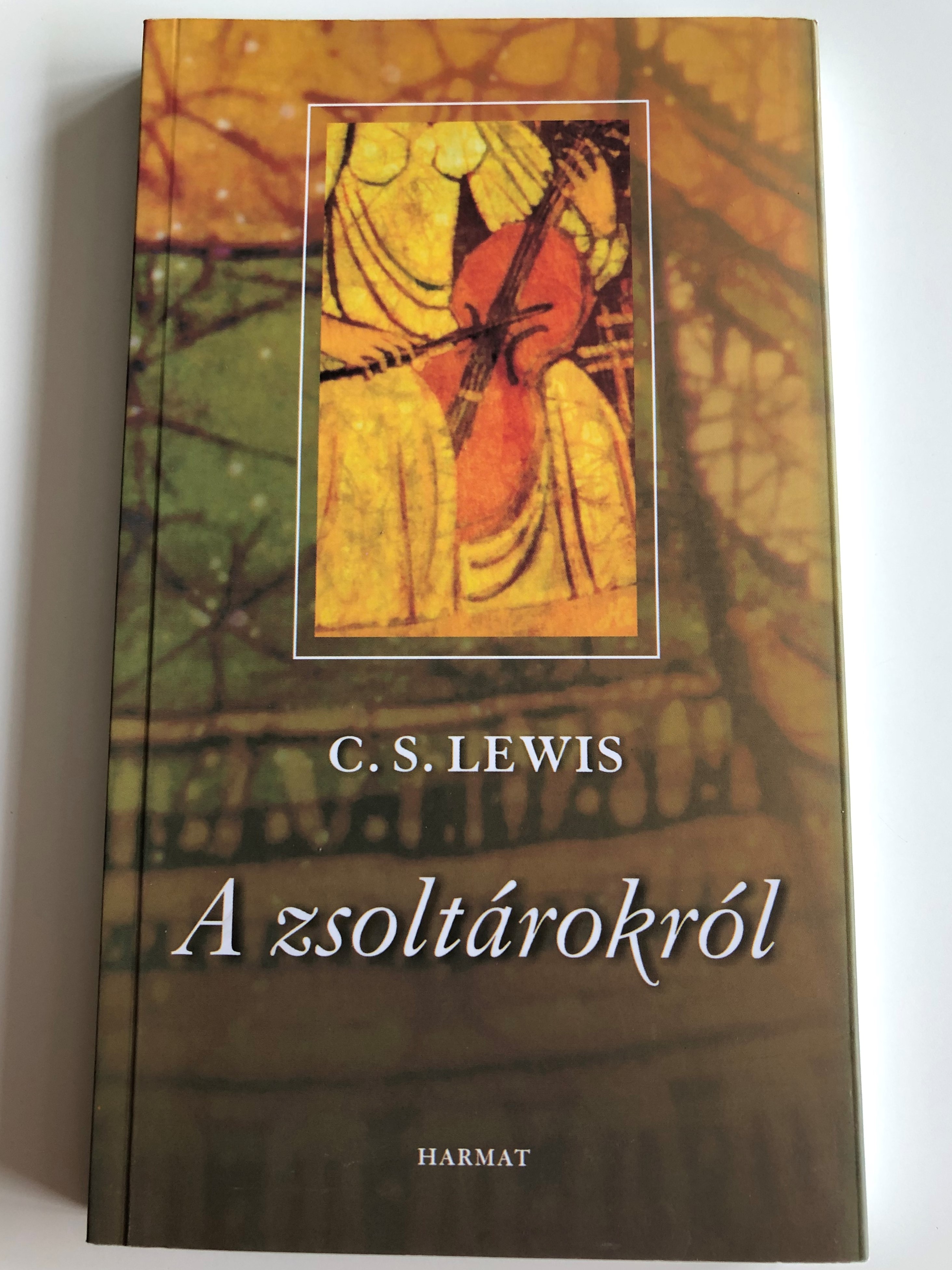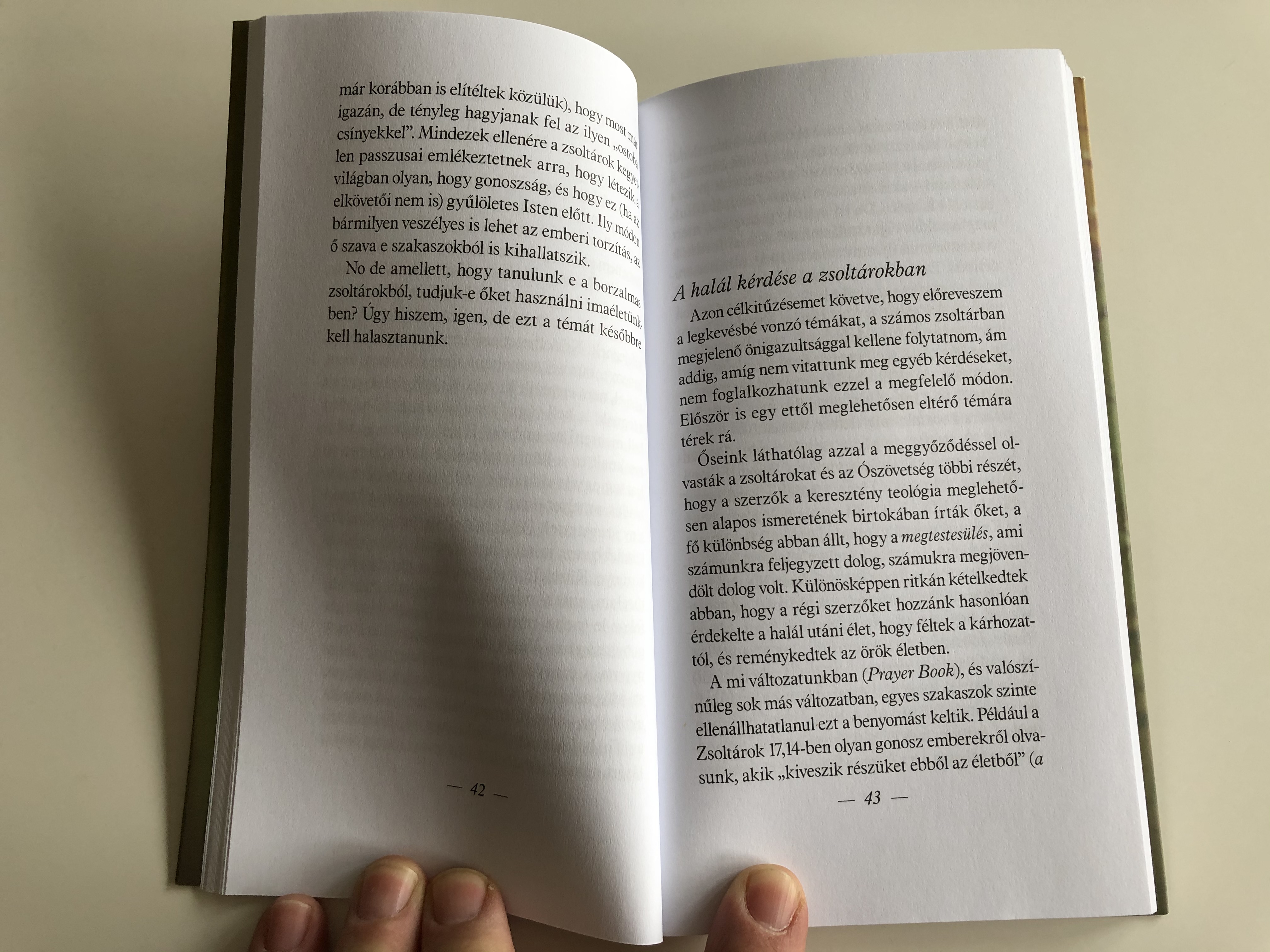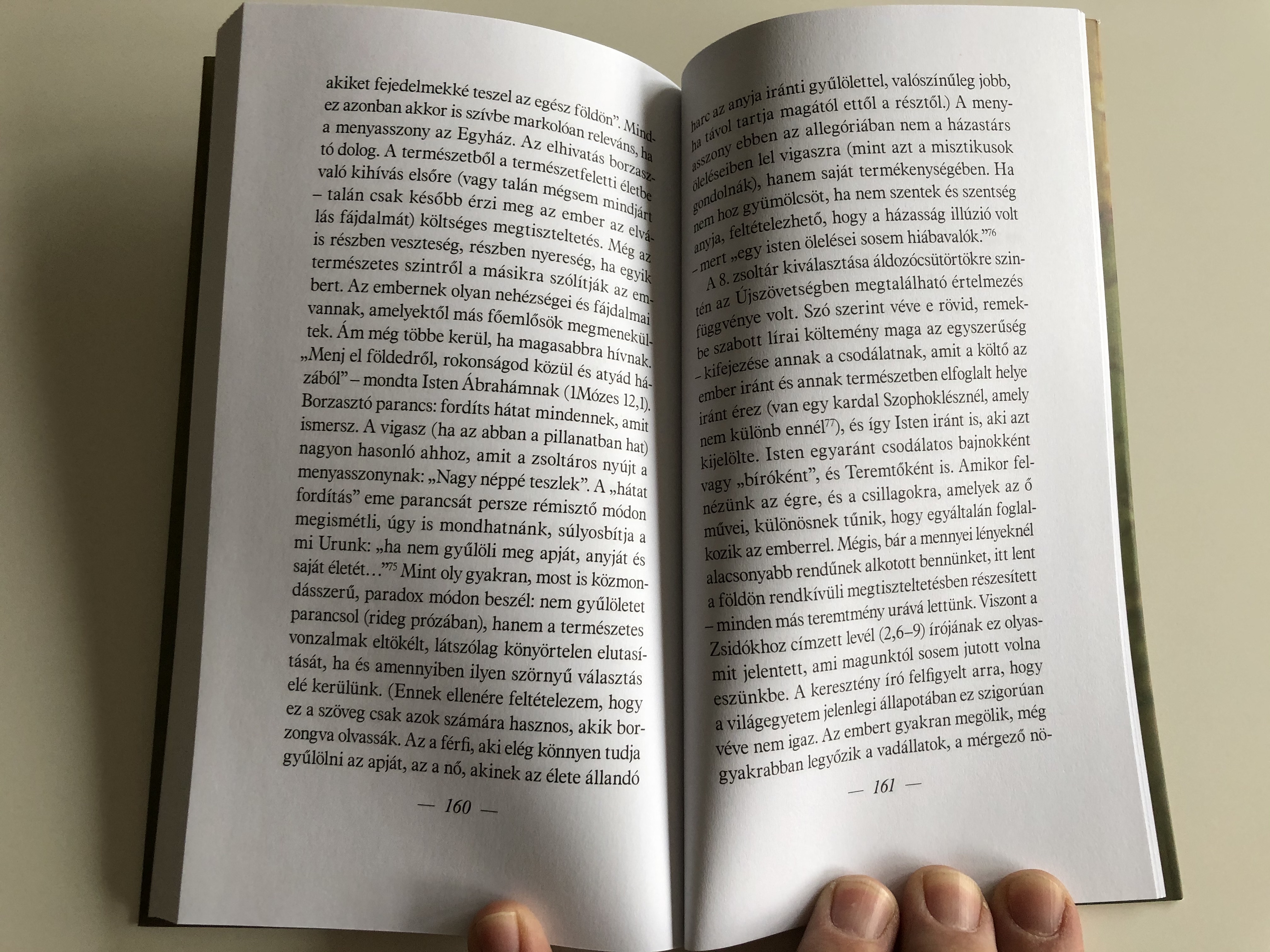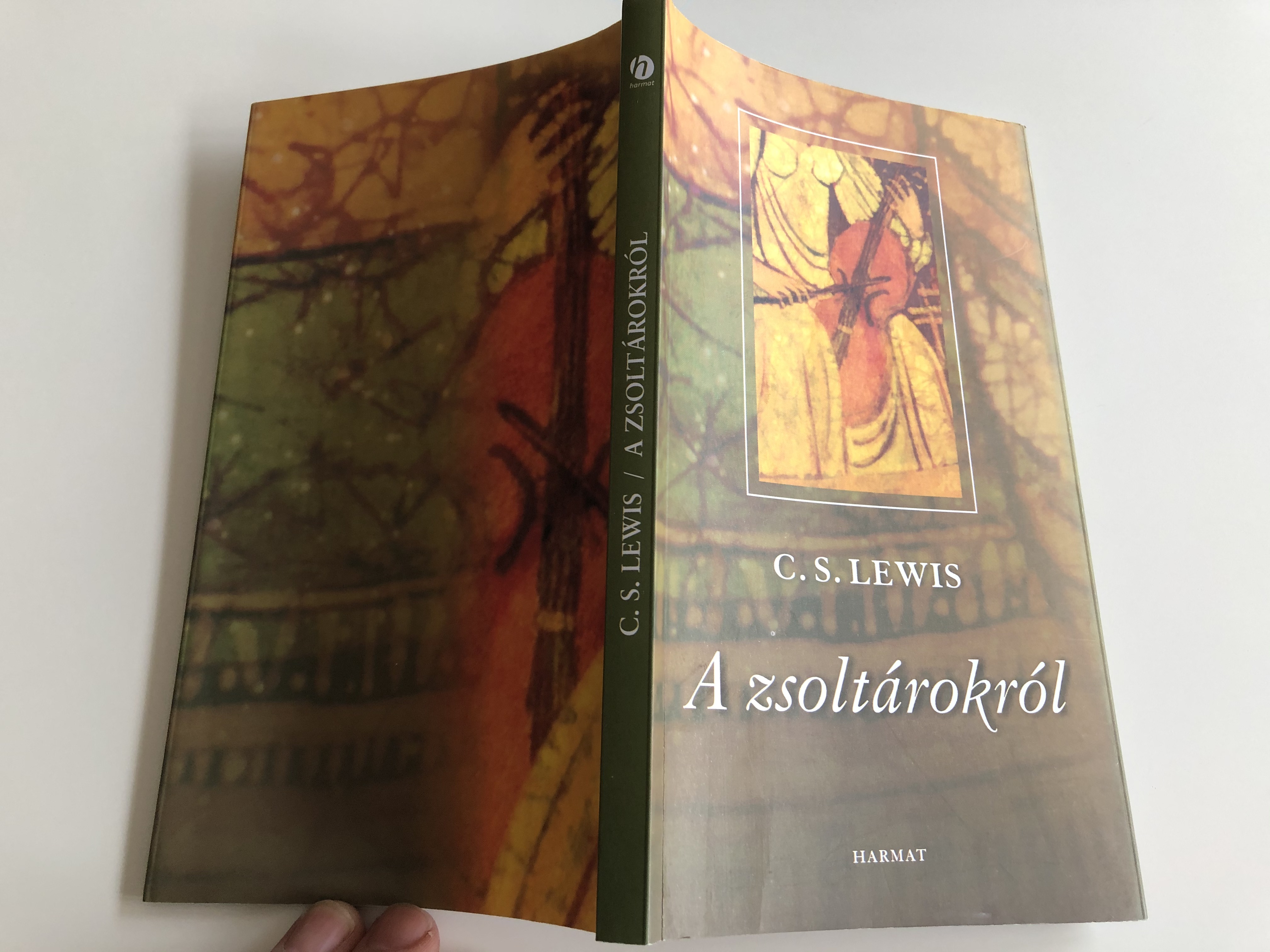Description
A Zsoltárokról by C. S. Lewis (Hungarian Edition of Reflections on the Psalms)
UPC: 9789632881881
Overview
C. S. Lewis's A Zsoltárokról (Reflections on the Psalms, Hungarian edition) brings the beloved Oxford scholar’s insights into the Psalms to Hungarian readers. In this spiritually enriching work, Lewis shares his personal reflections on the joys and challenges of reading the Psalms—not as a theologian or historian, but as a thoughtful believer and literary critic. Emphasizing their poetic nature and emotional depth, Lewis invites readers to engage with the Psalms as timeless expressions of worship, lament, and praise, enriched with references to world literature.
Product Features:
- Format: Paperback
- Publication Year: 2013
- ISBN-13: 978-9632881881
- ISBN-10: 9632881885
- Pages: 180
- Publisher: Harmat Kiadó
- Language: Hungarian (Magyar)
Interesting Facts:
- Author Background: C. S. Lewis is one of the most celebrated Christian writers of the 20th century, known for his fiction (The Chronicles of Narnia) and Christian apologetics (Mere Christianity).
- Unique Perspective: Unlike scholarly analyses, Lewis approaches the Psalms as a reader deeply moved by their poetic and emotional power.
- Translation: The Hungarian edition was skillfully translated by Főgler László, preserving the nuances of Lewis’s prose for Hungarian audiences.
- Publisher: Harmat Kiadó is a respected Hungarian publishing house focused on Christian literature, known for its commitment to high-quality translations and meaningful works.
- Connection to the Author’s Life: Lewis's return to faith profoundly influenced his view of scripture. His reflections on the Psalms reveal his deep personal relationship with the texts, enriched by his literary background.
- Relevance Today: This work remains a valuable guide for anyone seeking to understand the Psalms’ spiritual, artistic, and cultural significance.
Publishers:
Harmat Kiadó
Harmat Kiadó is a leading Hungarian publisher specializing in Christian literature, offering readers transformative works that inspire spiritual growth.
We value your feedback! Share your experience with this product to help others make informed decisions. Your review is important to us!
Hashtags:
#CSLewis #ReflectionsOnThePsalms #ChristianBooks #HungarianTranslation #HarmatKiadó #BiblicalReflections #ChristianLiterature #PoetryOfThePsalms #FaithAndLiterature #SpiritualClassics
Hungarian Translation
Áttekintés
C. S. Lewis A Zsoltárokról című műve (Reflections on the Psalms, magyar fordítás) a világhírű oxfordi tudós gondolatait hozza el a magyar olvasók számára a Zsoltárok könyvéről. Ebben a lélekemelő műben Lewis megosztja személyes reflexióit a zsoltárok olvasása során szerzett örömeiről és nehézségeiről – nem mint teológus vagy történész, hanem mint érzékeny hívő és irodalomkritikus. A zsoltárokat mint költeményeket tárja elénk, amelyek érzelmi mélységeire és szépségére irányítja figyelmünket, számos világirodalmi utalással gazdagítva mondanivalóját.
Termékjellemzők:
- Formátum: Puhakötés
- Kiadás éve: 2013
- ISBN-13: 978-9632881881
- ISBN-10: 9632881885
- Oldalszám: 180
- Kiadó: Harmat Kiadó
- Nyelv: Magyar
Érdekességek:
- A szerzőről: C. S. Lewis a 20. század egyik legkiemelkedőbb keresztény írója, akit leginkább A Narnia krónikái című ifjúsági regénysorozatáról, valamint apologetikai műveiről (Keresztény vagyok) ismerhetünk.
- Egyedi megközelítés: Lewis nem tudományos elemzést nyújt, hanem olvasóként osztja meg a zsoltárok költészeti és érzelmi hatásait.
- Fordítás: A magyar kiadást Főgler László fordította, aki mesterien adta vissza Lewis prózájának finomságait a magyar közönség számára.
- Kiadó: A Harmat Kiadó elkötelezett a keresztény irodalom minőségi kiadása iránt, fontos szerepet játszva az ilyen típusú könyvek népszerűsítésében Magyarországon.
- Kapcsolódás a szerző életéhez: Lewis hitre való visszatérése mélyen befolyásolta a szentírásról alkotott nézeteit. A Zsoltárok könyvéről szóló reflexiói mélyen személyes kapcsolatot tükröznek a szövegekkel, amelyet irodalmi háttere is gazdagít.
- Mai relevancia: Ez a mű ma is értékes útmutató mindazok számára, akik meg akarják érteni a zsoltárok spirituális, művészi és kulturális jelentőségét.
Kiadó:
Harmat Kiadó
A Harmat Kiadó Magyarország egyik vezető keresztény könyvkiadója, amely inspiráló, lelki növekedést segítő műveket kínál olvasóinak.
Véleményed fontos számunkra! Oszd meg tapasztalataidat erről a termékről, hogy mások is tájékozott döntést hozhassanak. Köszönjük, hogy értékeled munkánkat!
Hashtags:
#CSLewis #AZsoltarokrol #KeresztenyKonyvek #HarmatKiado #BibliaiElmelyules #ZsoltarokKolteszet #HitEsIrodalom #SzellemiKlasszikusok #KeresztényIrodalom


































